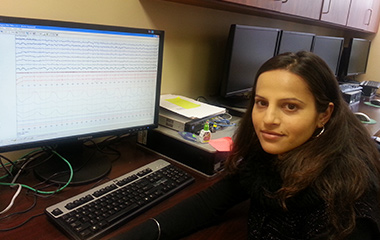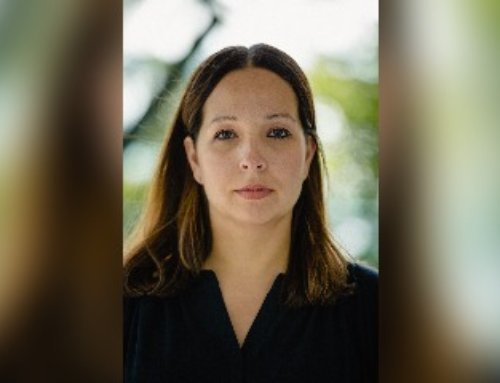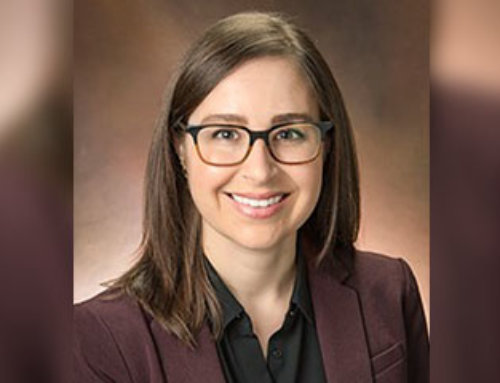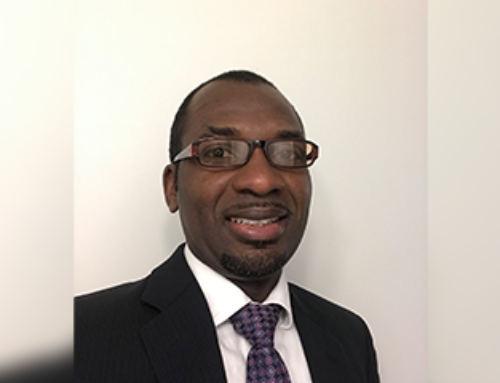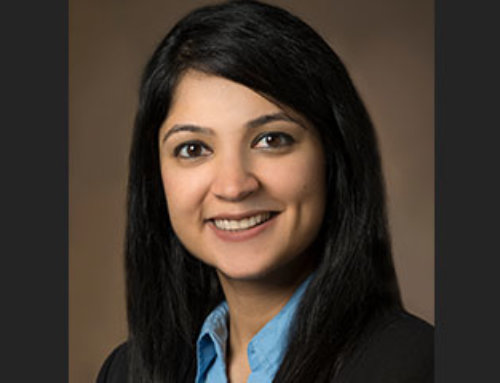2012 Bridge to K Award
As a junior faculty trying to launch a career in research and successfully transition into the role of an independent investigator in sleep medicine, Neomi Shah, MD, MPH, had reached a crossroads in her three-year journey.
Shah had been given a three-year contract when she was appointed as Assistant Professor of Medicine at Albert Einstein College of Medicine and Associate Director of the Pulmonary Sleep Lab at Montefiore Medical Center in Bronx, N.Y. In her dual role as a clinical scholar, 50 percent of her time was protected for research.
She got to work right away, building an infrastructure for sleep investigations at MMC, where there was a lack of a clinical sleep research program in the adult patient population. Shah also developed multidisciplinary collaborations with established investigators, including her mentor Susan Redline, MD, MPH, a Senior Physician in the Division of Sleep Medicine at Brigham and Women’s Hospital in Boston, as well as Einstein cardiovascular epidemiologist Robert C. Kaplan, PhD.
Shah’s initiative and drive led to multiple forms of grant support, including a 2011 ABSM Junior Faculty Research Award from the American Academy of Sleep Medicine Foundation (AASM Foundation) to study obstructive sleep apnea in the Hispanic Community Health Study/Study of Latinos. She engaged in several research projects and submitted a promising application to the National Heart, Lung, and Blood Institute (NHLBI) for a Mentored Patient-Oriented Research Career Development Award (K23) to study OSA and acute myocardial infarction.
However, after diligently building this foundation for her research career, Shah was going to have to begin devoting more of her time to clinical work. Then she received a 2012 AASM Foundation Bridge to K Award.
“The Bridge to K Award came at a critical time, at the termination of my three-year contract at my institution,” Shah said. “The AASM Foundation has really salvaged my career.”
Receiving the award allowed her institution to increase her protected research time to a minimum of 75 percent, with no more than 10 hours of clinical work required each week. This protection has enabled Shah to focus on gathering additional preliminary data to strengthen her K23 application.
Her research has led to the novel finding that sleep apnea patients have less severe myocardial infarction when compared to those without OSA. Now she is seeking to understand this relationship at the molecular level by exploring vascular endothelial growth factor (VEGF) pathways that may lead to improved coronary collateral circulation. In particular, she is analyzing activity of hypoxia inducible factor -1 (HIF-1), which directly regulates the production of VEGF. The lab of S. Ananth Karumanchi, MD, a leading vascular biologist at Harvard, is providing assistance with specimen analysis.
Shah’s study could have enormous implications for public health. According to the Centers for Disease Control and Prevention, about 715,000 Americans have a heart attack every year. Her findings could help explain why older patients with sleep apnea appear to have better survival than those without OSA, and the results may inspire future investigations evaluating ischemic preconditioning in patients with OSA. According to Shah, it is conceivable that intermittent hypoxemia could be a novel treatment for cardioprotection after a myocardial infarction.
In addition to enabling Shah to strengthen the data and aims of her K23 application, the Bridge to K Award also has helped her bolster her publication record. In 2012 she was lead author of a paper published in Sleep and Breathing, “Obstructive sleep apnea and severity of myocardial infarction: ischemic preconditioning?” She also was lead author of a paper that has been accepted for publication in Clinical Pulmonary Medicine and co-author of another paper published in the American Journal of Cardiology. At ATS 2013 in May she will be presenting four research abstracts including, “Vascular endothelial growth factor levels among patients screened for sleep apnea during acute myocardial infarction.”
Shah is convinced that AASM Foundation grants like the Bridge to K Award will have a lasting impact on the sleep field.
“There is a paucity of junior investigators in the sleep research pipeline,” she said. “The AASM Foundation grant program definitely will fuel more junior investigators into this pipeline that will likely impact the quality of sleep research five and 10 years down the road.”
Updated March 29, 2018


